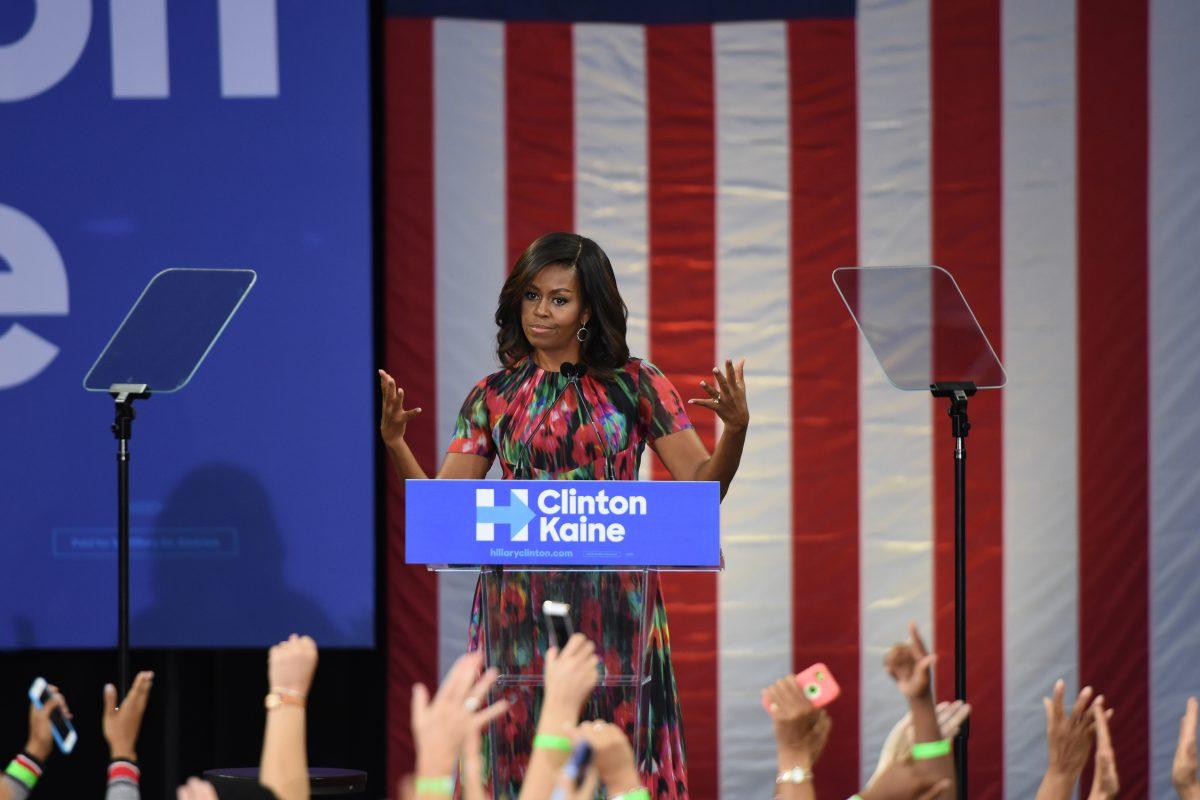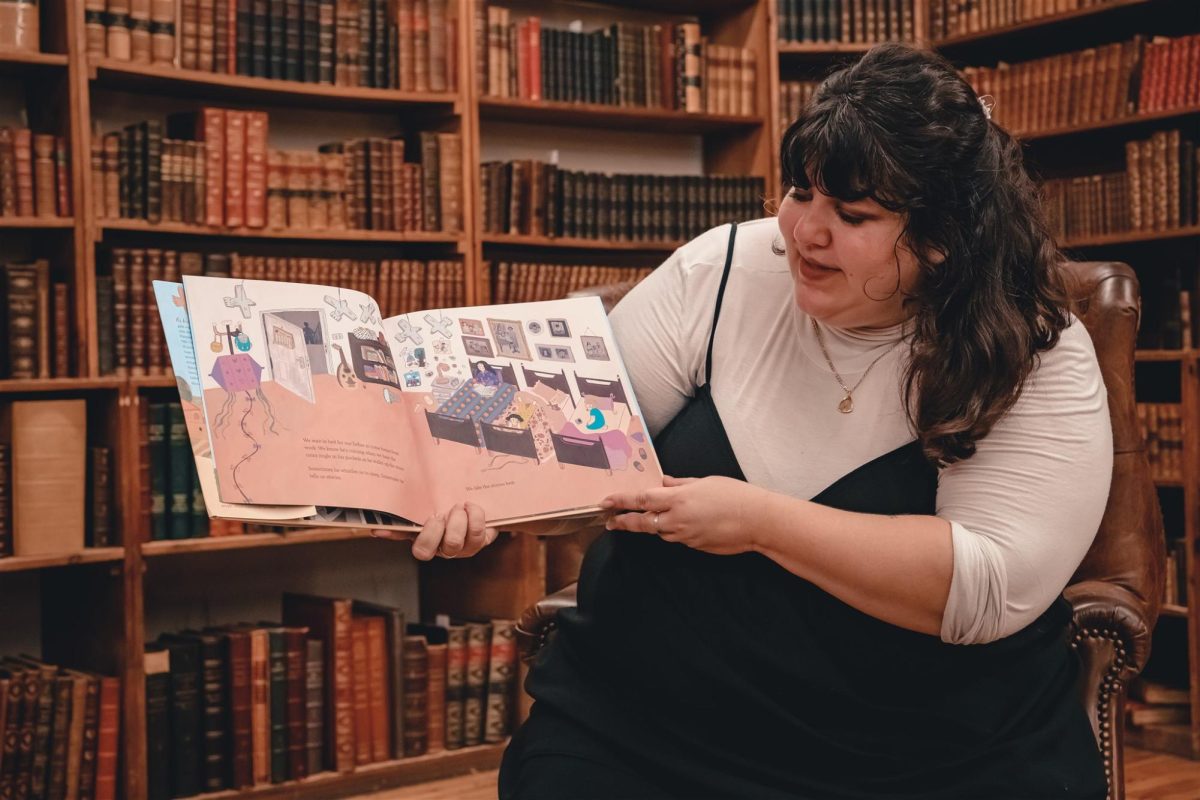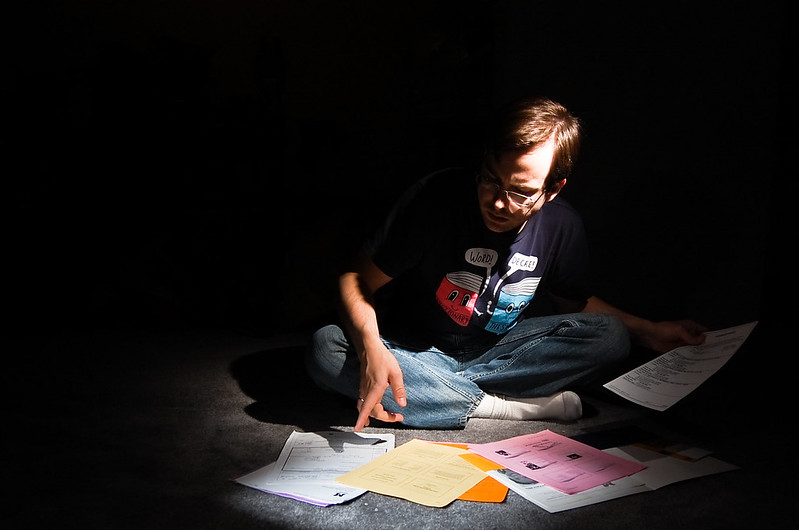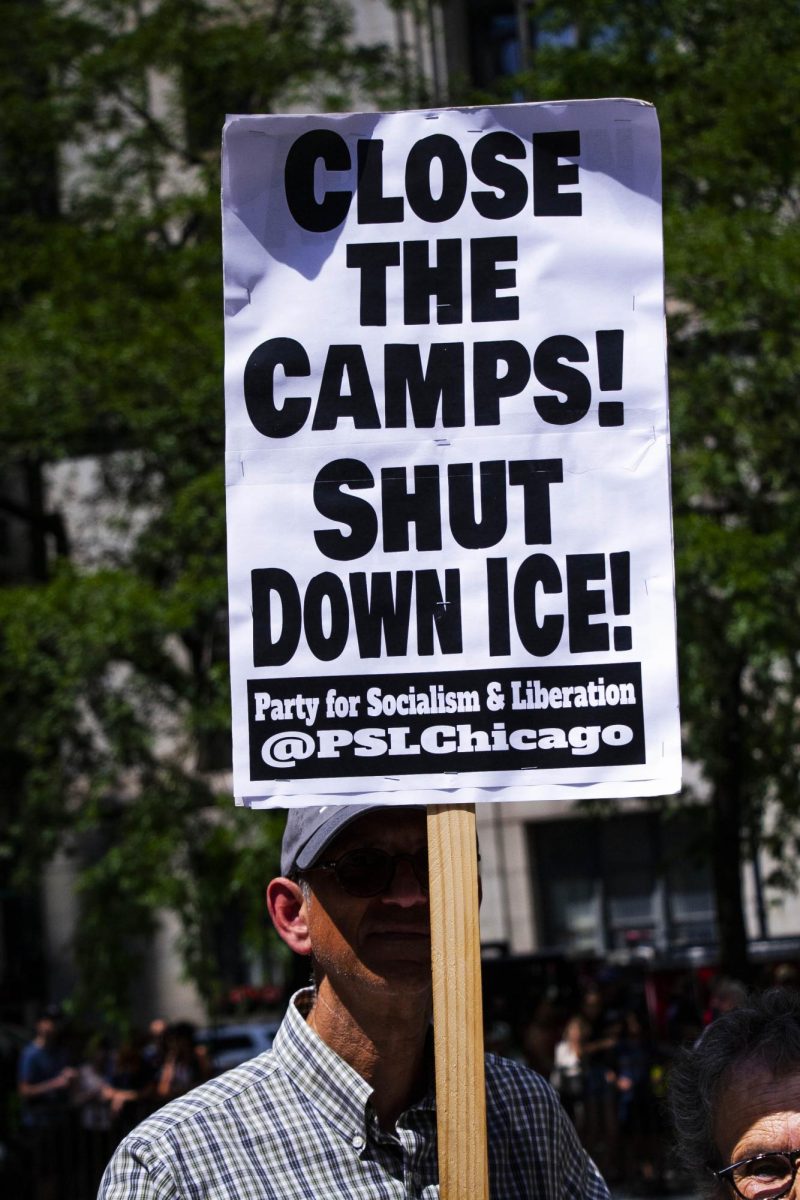Zoe Wilson | Correspondent
On Tuesday, Oct. 4 the First Lady of the United States, Michelle Obama spoke to a crowd of approximately 6,000 at Reynolds Coliseum to campaign for Hillary Clinton and encourage everyone, especially millennials, to vote in the upcoming election.
Typically younger generations have the least amount of voter participation, but the First Lady wants to change this and made a point to say, “Elections aren’t just about who votes, but who doesn’t vote. That’s especially true for our young people like many of you.”
North Carolina is a swing state and this means no single candidate or party has overwhelming support in securing the state’s electoral college votes. Wake County is one of the top 25 swing counties in the country. Therefore every vote, or lack thereof, will impact the final results on Nov. 8.
“Any of you who might be thinking your vote doesn’t matter, or that one person can’t make a difference, consider this,” urges Mrs. Obama, “Back in 2008 Barack won North Carolina by about 14,000 votes. That sounds like a lot, right? But when you break that down the difference between winning and losing this state was a little over two or three votes per precinct.”
If those few people in each precinct decided to stay home instead of voting in the 2008 election, North Carolina could have easily supported the opposing party. In the last election only about 17 votes per precinct determined the winning presidential candidate. This shows how close presidential elections can be and how everyone’s vote actually matters.
The First Lady alluded to the citizens who are not planning on voting in the upcoming election because they do not like either candidate and said, “it’s not about voting for the perfect president. There’s no such thing because presidents are human.”
Becca Green, a sophomore who is studying psychology said, “We’re at the age where these issues, like affording college, really start affecting us, so we have a responsibility to be proactive and choose who we feel will benefit us the most. Although each candidate is not perfect, we have to choose which one will be the best fit for our country, and by not voting, we are essentially helping the candidate who might not be the best fit.”
According to the News and Observer, about ten years ago there were less than a million independent registered voters, but today the amount of unaffiliated voters now outnumber those who are registered as affiliating with one of the major two political parties in more than half of North Carolina’s counties. Because there are more unaffiliated voters now than ever in North Carolina, undecided voters can dramatically impact this election, but only if each citizen chooses to vote.
Mr. Steven Greene, a professor of political science said, “The truth is young people love Michelle Obama, and to have her come out on Hillary Clinton’s behalf is smart campaigning and I suspect pretty effective, especially sending her to a college campus where you have so many young ponential Clinton voters that she needs to turn from potential to actual voters.”
According to the North Carolina State Board of Elections, in the 2012 election only 55.1 percent of registered voters ages 18-25 showed up to cast their vote in comparison to the 76.6 percent of citizens over the age of 65. If the percentage of millennials voting increases to match the older generations it could dramatically affect the presidency outcome, especially in North Carolina.
“Even kids need to get involved in this election because it’s that important for everyone’s voices to be heard and not just the grown ups because we all have reasonable answers,” said nine-year-old Sage Rose after meeting Mrs. Obama.







